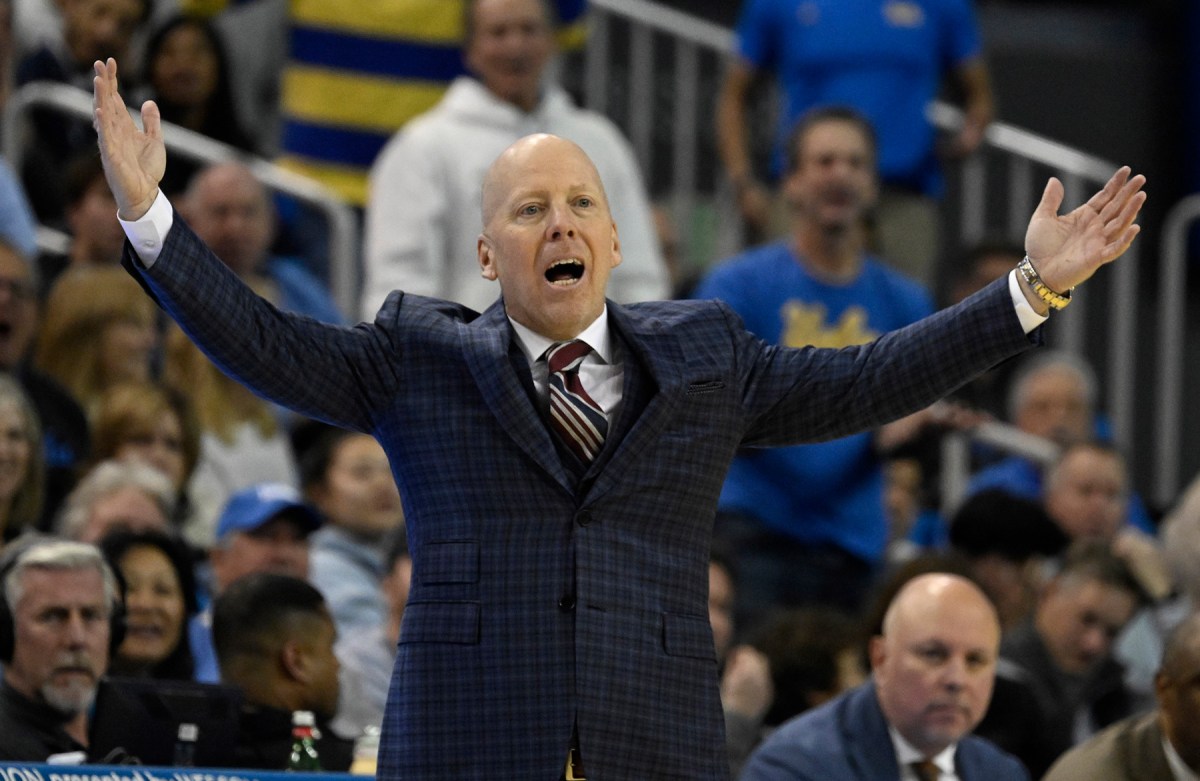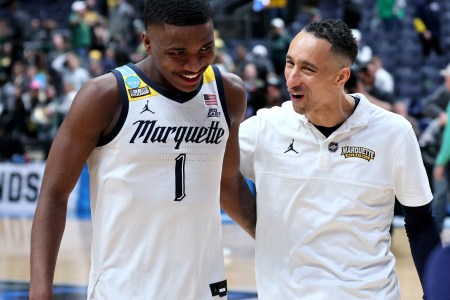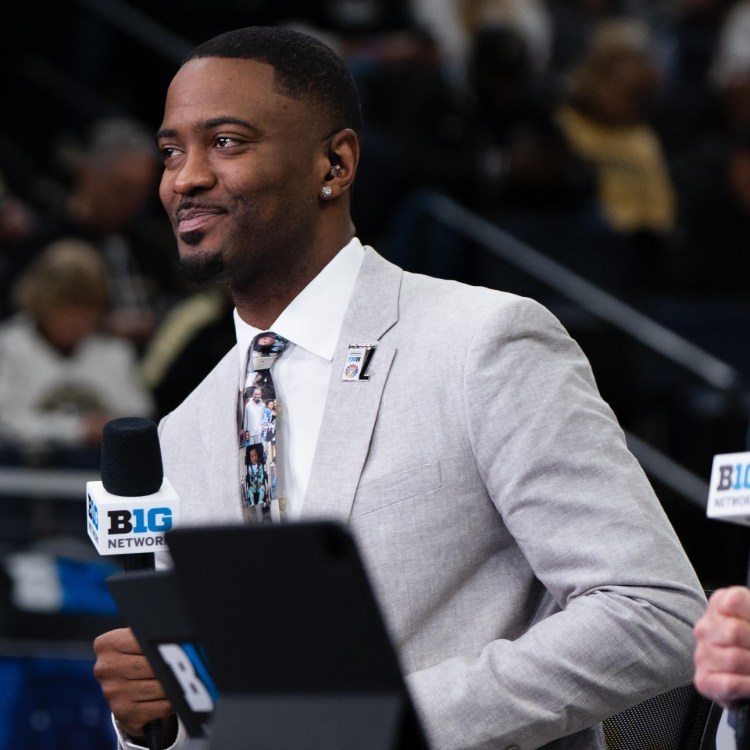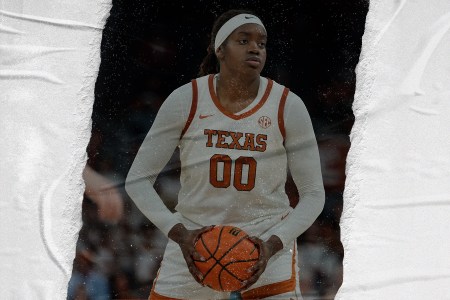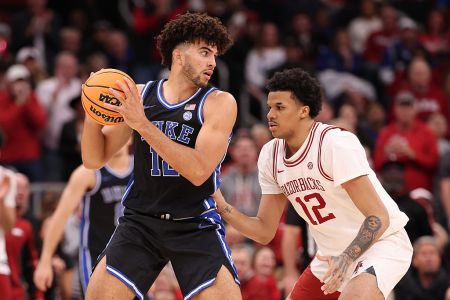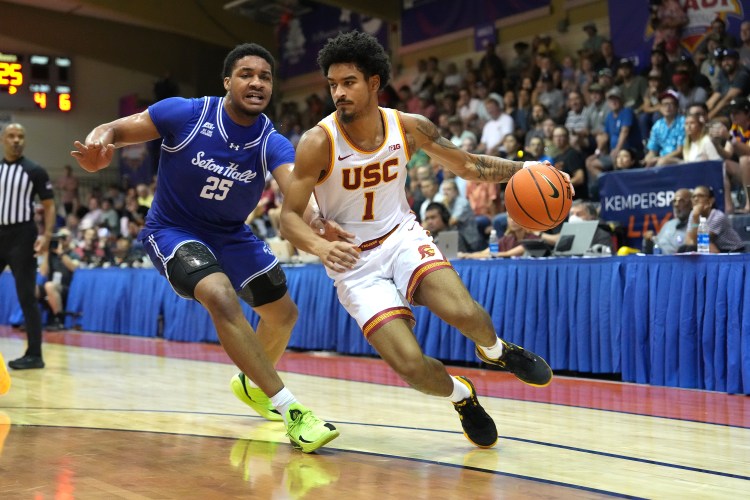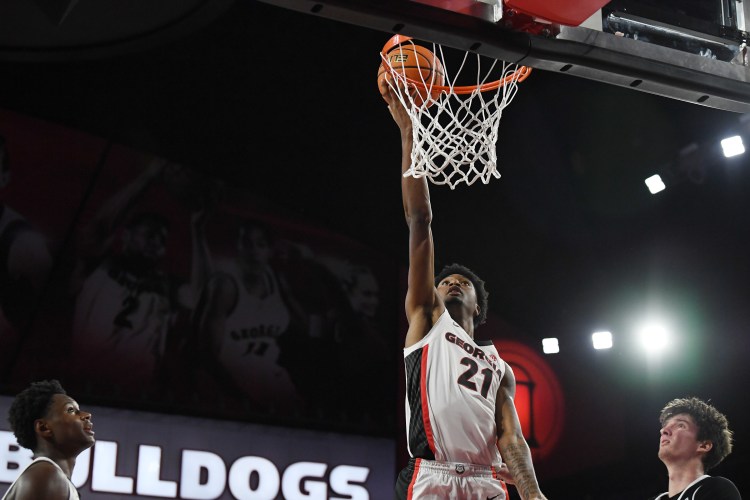Mick Cronin made headlines this week for his comments after UCLA’s 94-75 loss to Michigan. He criticized his players for being “soft” and “completely delusional about who they are,” suggesting the entire locker room has been apathetic. “I don’t need to do anything else. I almost got 500 wins. I’m only 53,” Cronin said. “You’d think I’m coaching the Lakers. It’s a joke. I come in and I have more passion and energy and pride than everybody in there. That’s the problem.”
This is the challenge that comes with using the transfer portal like UCLA did this offseason when it brought in six new players, including USC guard Kobe Johnson, Oklahoma State guard Eric Dailey Jr., Louisville guard Skyy Clark and Oregon State forward Tyler Bilodeau. If you change the dynamics of your locker room drastically and replace the guys who remained loyal to your program, you take a risk that the culture is going to suffer. That’s the coach’s decision, so it’s not fair to point fingers at the players when problems arise.
This issue is prevalent across college basketball today. Coaches are taking advantage of the new system, then blaming that same system — and their players — when things don’t go their way. Jim Larranaga is another example. A couple of years ago, Miami brought in Nijel Pack on a big NIL deal and Isaiah Wong got upset and threatened to transfer. The Hurricanes went to the Final Four, but when Larranaga tried to replicate that success, he found he didn’t have the same NIL resources. Not only did he quit during the season, he blamed “the system” on his way out. In other words, he was fine with the portal when it worked to his benefit then complained about it when it didn’t. And somehow, the players were the ones being portrayed as soft.
More on the portal & NIL
Marquette’s Shaka Smart Doesn’t Use the Transfer Portal. He’s Still Winning.
The Golden Eagles’ win over Purdue Tuesday night was another victory for continuity in an age of change
Florida State’s NIL Lawsuit Will Reverberate Well Beyond the Courtroom
The six plaintiffs’ claim against coach Leonard Hamilton may not have had a written contract, but their accusations will make coaches think twice about breaking their promises
With all this talk and complaining about the portal, the overall importance of culture is getting lost. That has been my biggest gripe with the new landscape. The players who remain loyal to a school should be rewarded, not replaced. And if replacements are brought in via the portal, then coaches shouldn’t be surprised when the vibe of their team is off.
As a player, I stayed loyal and it changed my career. During my first two seasons at Purdue, we sucked. We finished last in the Big Ten in 2013-14 when I was a sophomore. I played 18 minutes per game and was terrible. I shouldn’t have played any more than I did, I’m willing to admit that. After that season, I decided to stay with the program along with a handful of other guys, including two of our starters in A.J. Hammons and Kendall Stephens. Matt Painter didn’t look to replace us. He brought in freshmen and one grad transfer in late October, but that was it. And the next season, I started all 34 games and was named Big Ten Defensive Player of the Year. As a team, we got back to winning, finishing 21-13 and third in the conference. If Painter had brought in another senior, I would have been left for dead. And if I had transferred someplace else? I would have been perceived as soft.
The bottom line is that if you’re going to rely heavily on the portal, you can’t expect the vibes to always be positive and you certainly can’t act like the players are the only ones to blame when things go wrong. Talent can’t be worth more than culture. Ultimately, the teams that value loyalty and care the most about culture are the ones that win.

